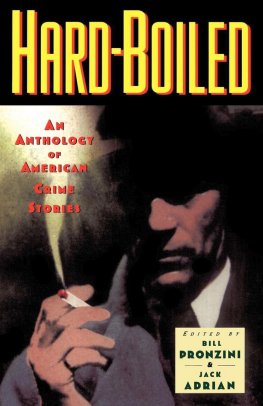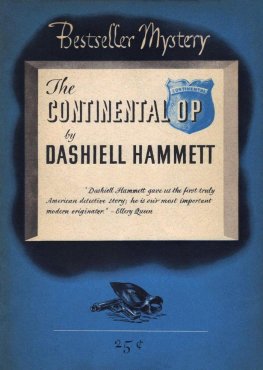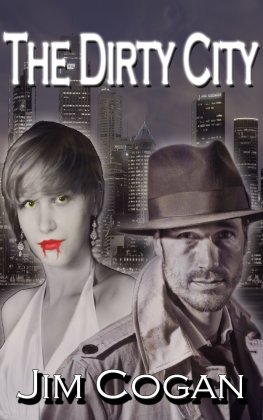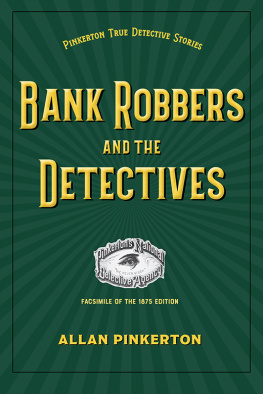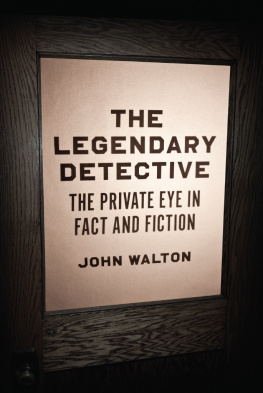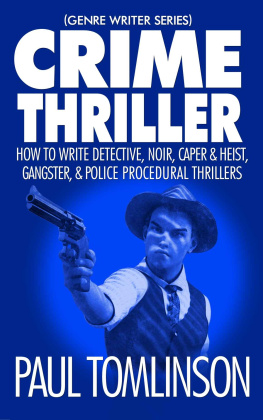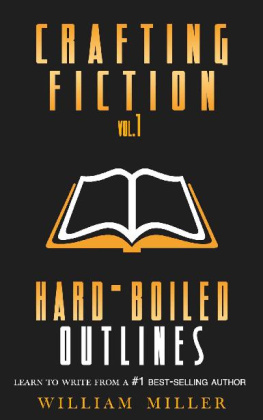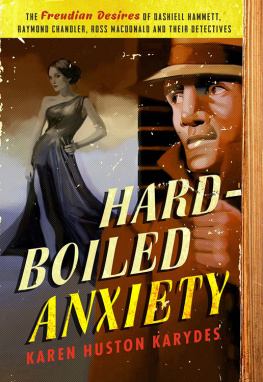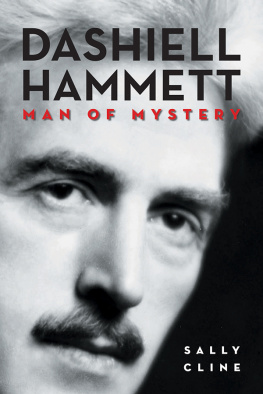Contents
Guide
Pagebreaks of the print version
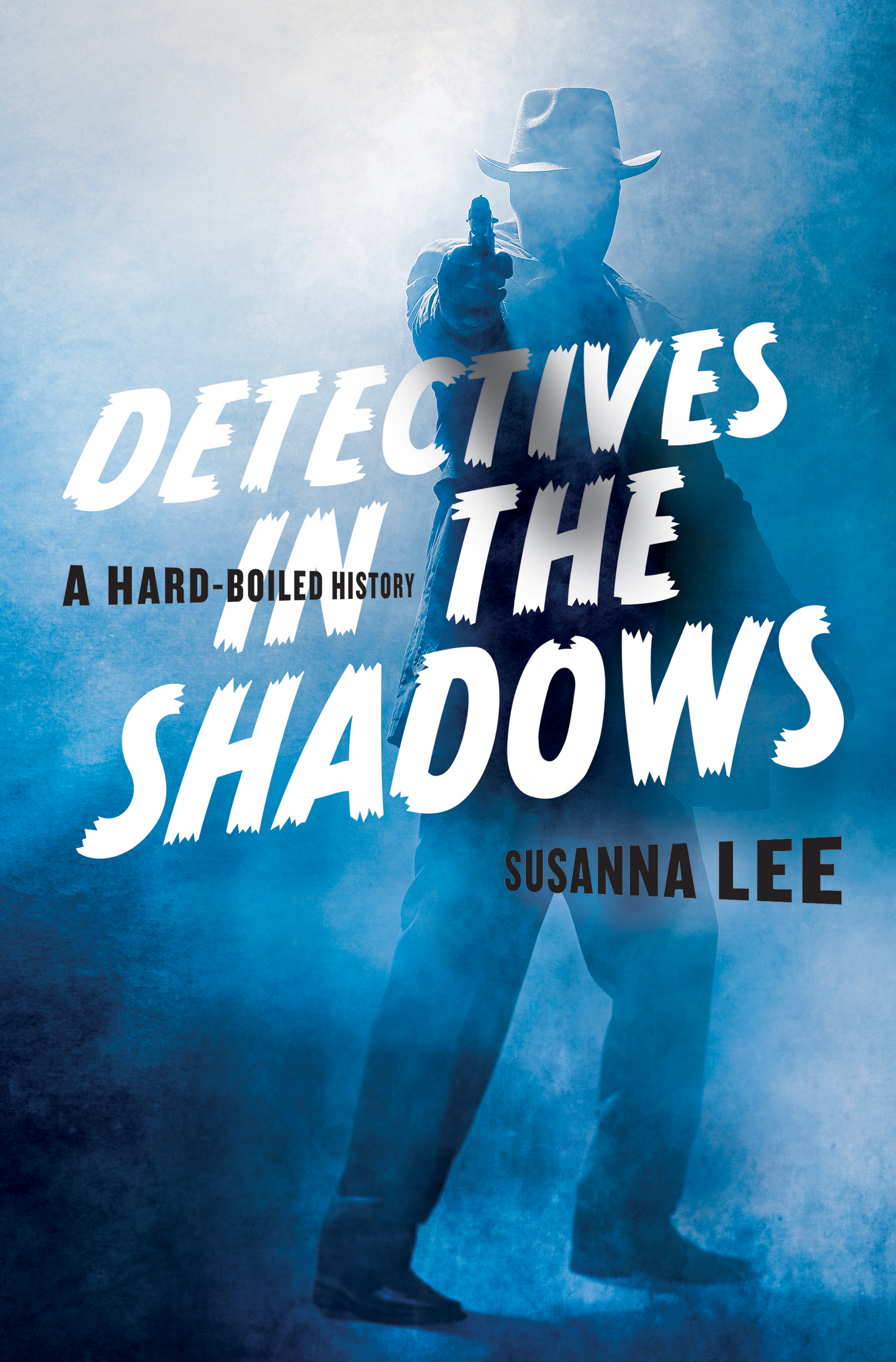
DETECTIVES IN THE SHADOWS
DETECTIVES IN THE SHADOWS
A HARD-BOILED HISTORY
SUSANNA LEE

JOHNS HOPKINS UNIVERSITY PRESS| BALTIMORE
2020 Susanna Lee
All rights reserved. Published 2020
Printed in the United States of America on acid-free paper
9 8 7 6 5 4 3 2 1
Johns Hopkins University Press
2715 North Charles Street
Baltimore, Maryland 21218-4363
www.press.jhu.edu
Library of Congress Cataloging-in-Publication Data
Names: Lee, Susanna, 1970 author.
Title: Detectives in the shadows : a hard-boiled history / Susanna Lee.
Description: Baltimore : Johns Hopkins University Press, 2020. | Includes bibliographical references and index.
Identifiers: LCCN 2019023262 | ISBN 9781421437095 (hardcover) | ISBN 9781421437101 (ebook)
Subjects: LCSH: Detective and mystery stories, AmericanHistory and criticism. | Detective and mystery filmsUnited StatesHistory and criticism. | Detectives in literature. | Detectives in motion pictures. | Heroes in literature. | Heroes in motion pictures. | Toughness (Personality trait) | National characteristics, American, in literature. | National characteristics, American, in motion pictures.
Classification: LCC PS374.D4 L427 2020 | DDC 813/.087209dc23
LC record available at https://lccn.loc.gov/2019023262
A catalog record for this book is available from the British Library.
Special discounts are available for bulk purchases of this book. For more information, please contact Special Sales at specialsales@press.jhu.edu.
Johns Hopkins University Press uses environmentally friendly book materials, including recycled text paper that is composed of at least 30 percent post-consumer waste, whenever possible.
CONTENTS
ACKNOWLEDGMENTS
I am grateful to many friends, family members, and colleagues for their support during the writing of this book. Edward Lee, Marianna Lee, Carole Sargent, Kathryn Shevelow, and Andrew Sobanet read all or portions of the manuscript and gave invaluable advice. Many thanks to Matt McAdam of Johns Hopkins University Press, whose vision helped bring this book into being, and to the wonderful Catherine Goldstead, who encouraged the projects expansion and shepherded it to completion.
A Senior Faculty Research Grant from Georgetown University supported the writing of this book. Kelly Coyne and Toby Hickson provided crucial research assistance. Joe Abbott supplied meticulous editing. Special thanks to Masha Belenky, Jeremy Billetdeaux, Peter Brooks, Erin Callahan, Susann Cokal, Laura Denardis, Mia Dentoni, the staff of the Georgetown University Lauinger Library, Angie Graham, Anne ONeil Henry, Cynthia Hobbs, Jennifer Kaplan, Peter Kok, Sandra Lee, Elizabeth Letcher, Tammy Lowengrub, Katie MacKaye, Joan Matus, Brian Pope, Maggie Prieto, Helen Sale, Eden Segal, Andrew Sobanet, Annie Steiner, Barbara Steiner, Carole Steiner, Michel Steiner, Erik ten Broecke, Maya ten Broecke, Nova ten Broecke, and Paul Young.
My greatest thanks go to Charlotte, Ryan, and Thomas Crean for making everything more meaningful and more fun. This book is dedicated to them.
INTRODUCTION
A Silhouette
For nearly a century, the trench coatwearing detective smoking a cigarette on a rainy street has been an American icon. Although not always garnering critical recognition or esteem, stories of the hard-boiled detective sold. From Prohibition to the stock market crash of 1929, from the Great Depression to the start of the Second World War, from the postwar threat of communism to the explosion of rock and roll, from the fall of Nixon to the consumerism of the 1980s, and from the national security concerns of the early 2000s to the election of 2016, hard-boiled detectives have persisted through some of the United States most fraught historical moments. For every tough season in American history, there is a detective who emerged to handle it. And while all crime fiction portrays a wealth of heroes for readers and viewers to enjoy, those of the hard-boiled tradition resonate with Americans on a particular level, the iconic image persisting from the pages of books to the screen. The hard-boiled narrative serves as a dark mirror for Americas worst impulses, while also offering a nuanced portrait of response and morality that actual history frequently fails to bear out. The hard-boiled detective is a sort of honorary shadow figure in US history. He emerges in the 1920s and 1930s with Carroll John Dalys Race Williams, Dashiell Hammetts Continental Op, and Raymond Chandlers Philip Marlowe. In the next two decades, he resurfaces as Mickey Spillanes Mike Hammer. By the 1970s, the hard-boiled detective is Robert Parkers Spenser and televisions Jim Rockford and Harry O. And in the early 2000s, a contemporary reincarnation of the hard-boiled appears in the form of The Wires Jimmy McNulty, True Detectives Rustin Cohle, and Jessica Joness titular character.
But the American hard-boiled hardly invented detective fiction. Edgar Allan Poes Murders in the Rue Morgue, published in 1841, is generally recognized as the first modern detective story. For decades after, the term detective meant the sort of armchair sleuth embodied by Sir Arthur Conan Doyles Sherlock Holmes or Agatha Christies Hercule Poirot and Miss Marple. Still, about the same time that Poe created Auguste Dupin, James Fenimore Cooper and John Pendleton Kennedy conceived their frontier protagonists. Coopers Leatherstocking (182341) and Kennedys Horse-Shoe Robinson (1835) are models of the modern American hero. Later in the nineteenth century, western sheriffs like Pat Garrett and Wyatt Earp would capture the popular imagination. When Carroll John Daly and Dashiell Hammett wrote for the pulp magazine Black Mask in the early 1920s, it was as if Leatherstocking, Dupin, and the lawmen of the Old West had joined forces to create a new, modern species. The hard-boiled breed had the canny sense of observation and quick mind of Dupin and Holmes and the plainspoken toughness of the American frontier hero. The resulting hybrid of those earlier character types was fantastically popular. First appearing in short stories in pulp magazines then in novels, the hard-boiled protagonist expanded into films and television programs. However reincarnated, the hard-boiled stood up for the nation and stood in for its people in a peculiarly American way.
The term hard-boiled first described human character in the late nineteenth century. A 1927 issue of American Speech recounts that the word egg [from hard-boiled eggs] was dropped and men became merely hard boiledand the term reverted to the old meaning as it was among the yeggs: hard, shrewd, keen men who neither asked nor expected sympathy nor gave any, who could not be imposed upon. Several early uses of the word, however, had an unmistakably negative connotation. In 1897, an item in Salems Daily Capital Journal upbraided a politician: Senator Mitchell, now honestly, dont you think it takes the barefaced impudence of a hard-boiled criminal to keep up such a proceeding? Then in 1919, a brutal former army lieutenant in charge of a French detention farm earned the nickname of Lieutenant Hardboiled Smith. According to survivors reports, Smith would ask his prisoners if they were hard-boiled and then torment them no matter what their response. The name derived from what he said to prisoners rather than from what he did, yet when he was tried for his crimes and jailed, Hardboiled Smith went down in history as a sadist to be feared.


